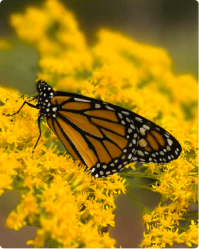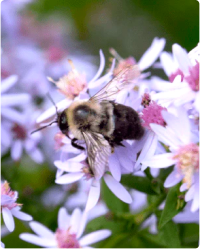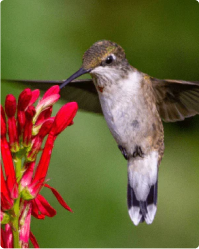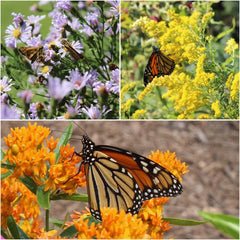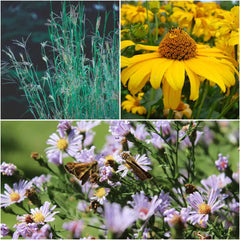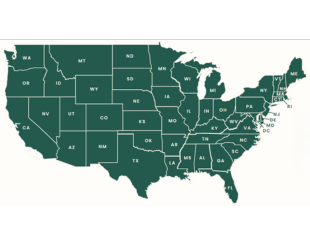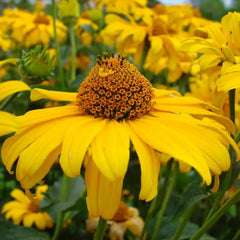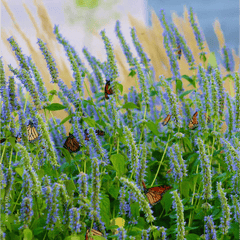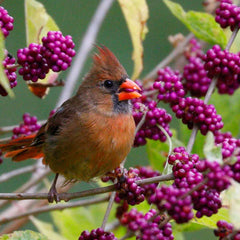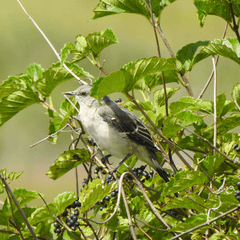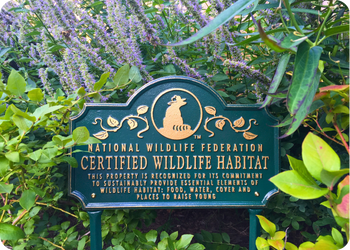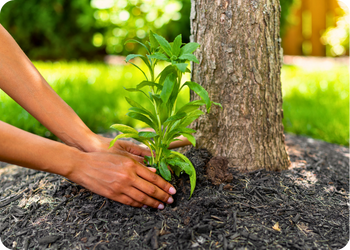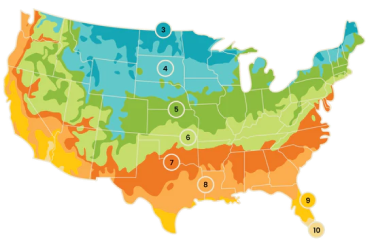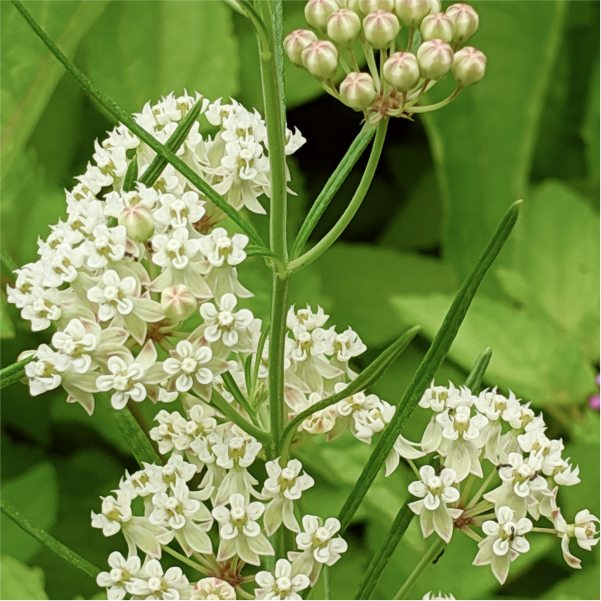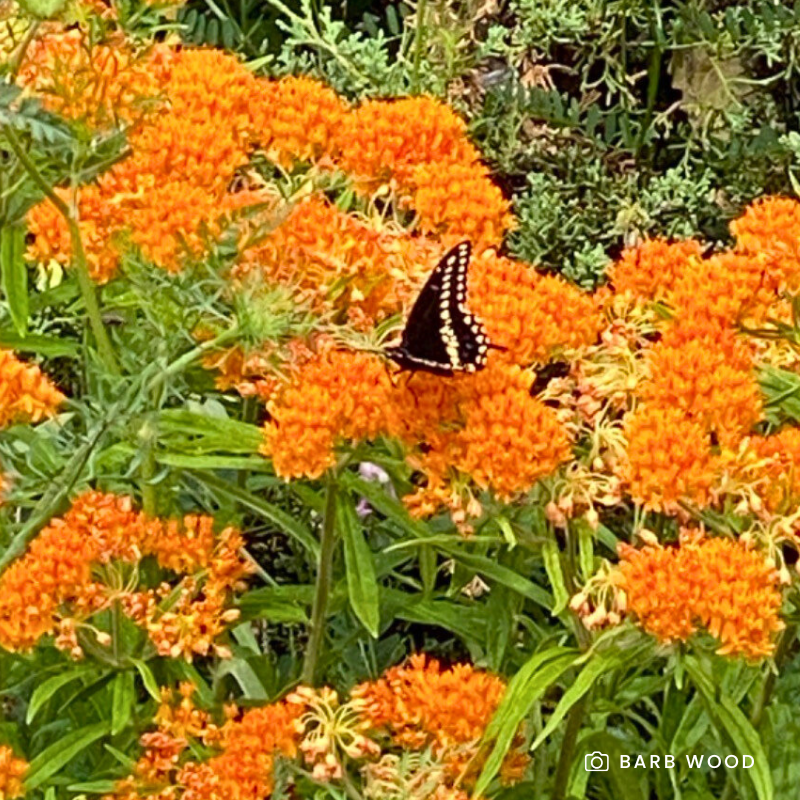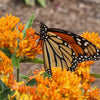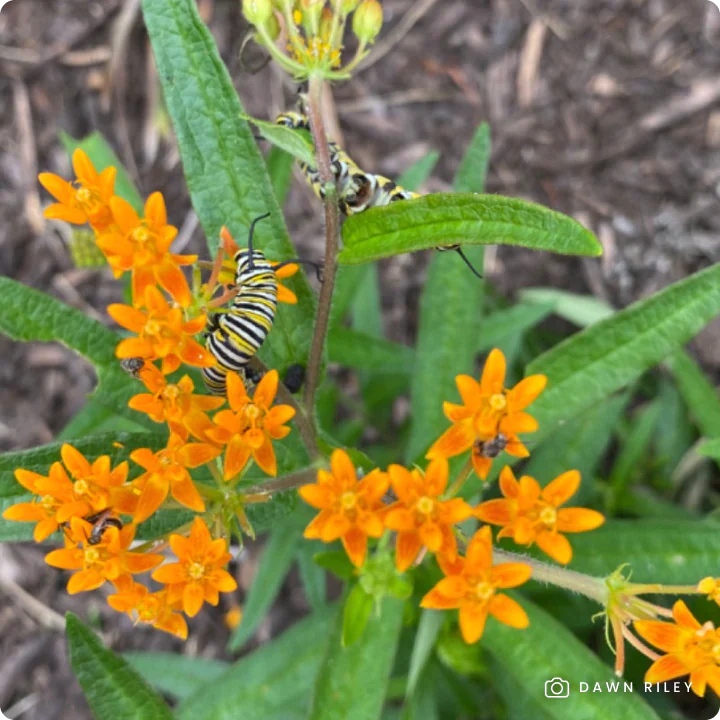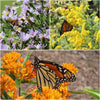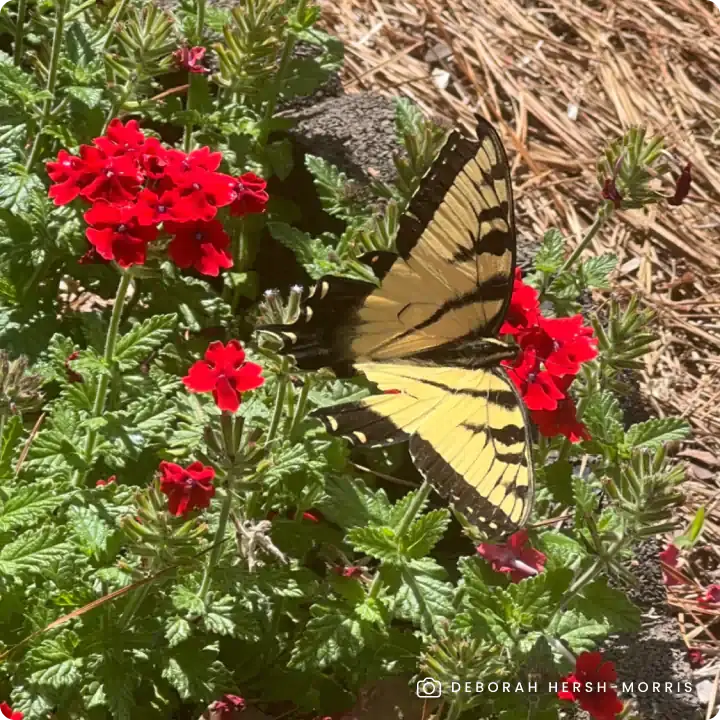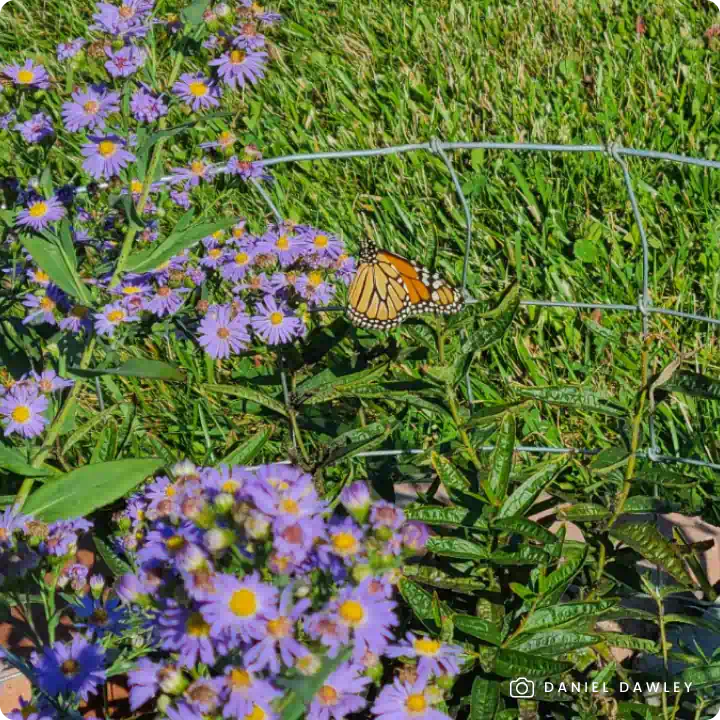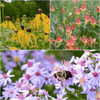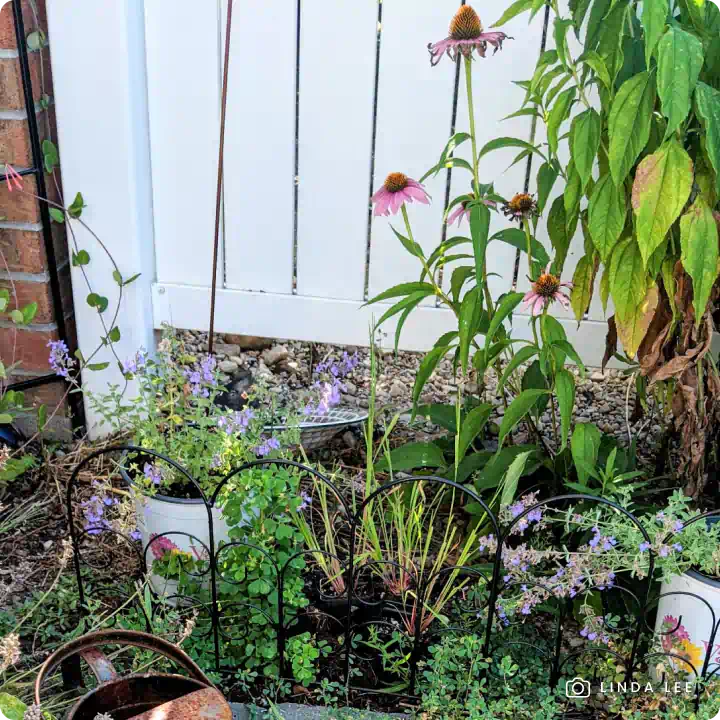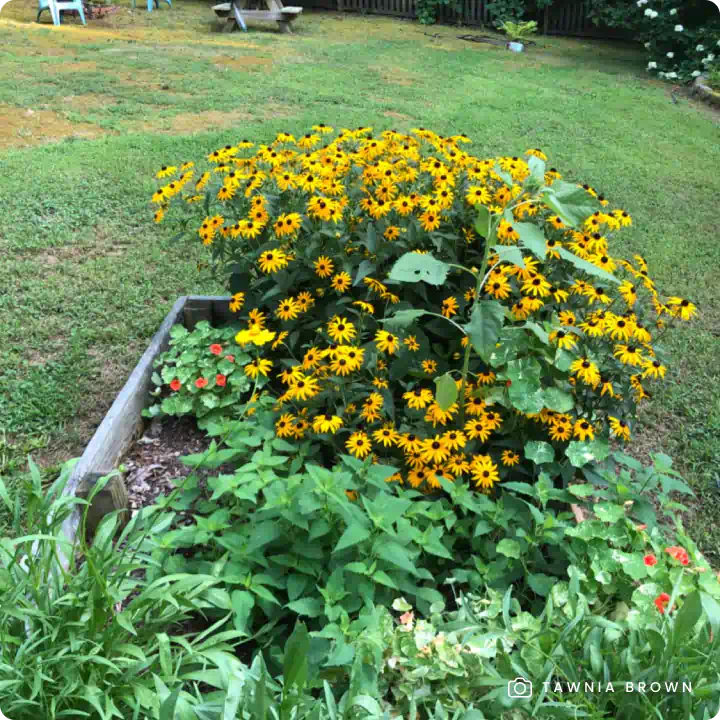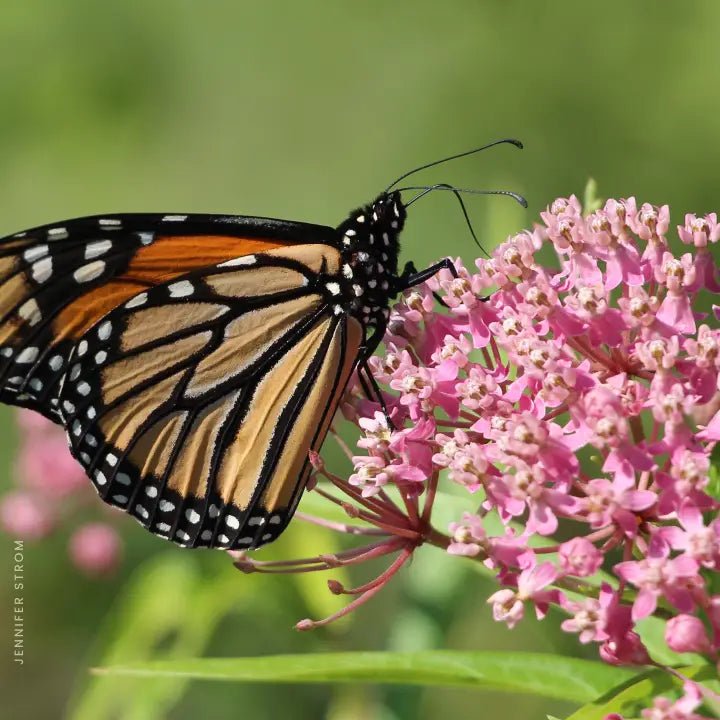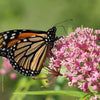Whorled Milkweed (Asclepias verticillata) is a resilient and versatile native plant, perfect for dry, sunny, and partly shaded areas. Its pale green-white hue and thin, whorled leaves create a delicate beauty in your garden. Late in the season, this milkweed produces tiny, fragrant blooms that provide nectar for a variety of butterflies and bees through early fall, making it an essential addition to any pollinator-friendly garden.
Key Benefits:
- Monarch Host Plant: A crucial host plant for monarch caterpillars, supporting their lifecycle and aiding in their conservation.
- Pollinator Magnet: The late-season blooms attract a diverse array of butterflies and bees, ensuring your garden is buzzing with activity.
- Wildlife Support: Provides essential resources for birds, butterflies, moths, and bees, contributing to a vibrant and biodiverse garden ecosystem.
- Perennial Beauty: Returns each year with minimal care, offering lasting beauty and ecological benefits.
- Low Maintenance: Requires less water once established and thrives without the need for chemical treatments, promoting a sustainable garden.
- Deer Resistant: Once established, Whorled Milkweed is resilient to deer browsing, ensuring the longevity and health of your garden.
- Versatile Quantities: Available in sets of three, six, or 12 plants, making it easy to tailor your garden's needs.
Why Choose Whorled Milkweed?
Whorled Milkweed not only enhances the aesthetic appeal of your garden but also plays a pivotal role in supporting local wildlife, particularly monarch butterflies. Its fragrant blooms and delicate foliage add texture and interest to garden beds and borders, while its ecological benefits ensure a thriving, sustainable landscape.
Planting Tips:
- Location: Choose a sunny or partly shaded area with well-drained soil.
- Watering: Water regularly during the first growing season to establish deep roots. Once established, reduce watering frequency.
- Maintenance: Minimal care required. There's no need to deadhead the flowers, as allowing them to go to seed provides a valuable food source for birds. Leaving the stems standing in the fall offers overwintering sites for beneficial insects. If desired, cut back the stems in late spring after pollinators have emerged.
For more information on planting, view our How to Plant Your Native Plants guide and other planting tips in the Garden for Wildlife Learning Center.
Transform your garden into a sanctuary for monarchs and other pollinators with Whorled Milkweed. Enjoy the delicate beauty and significant ecological benefits this native plant brings to your landscape.
